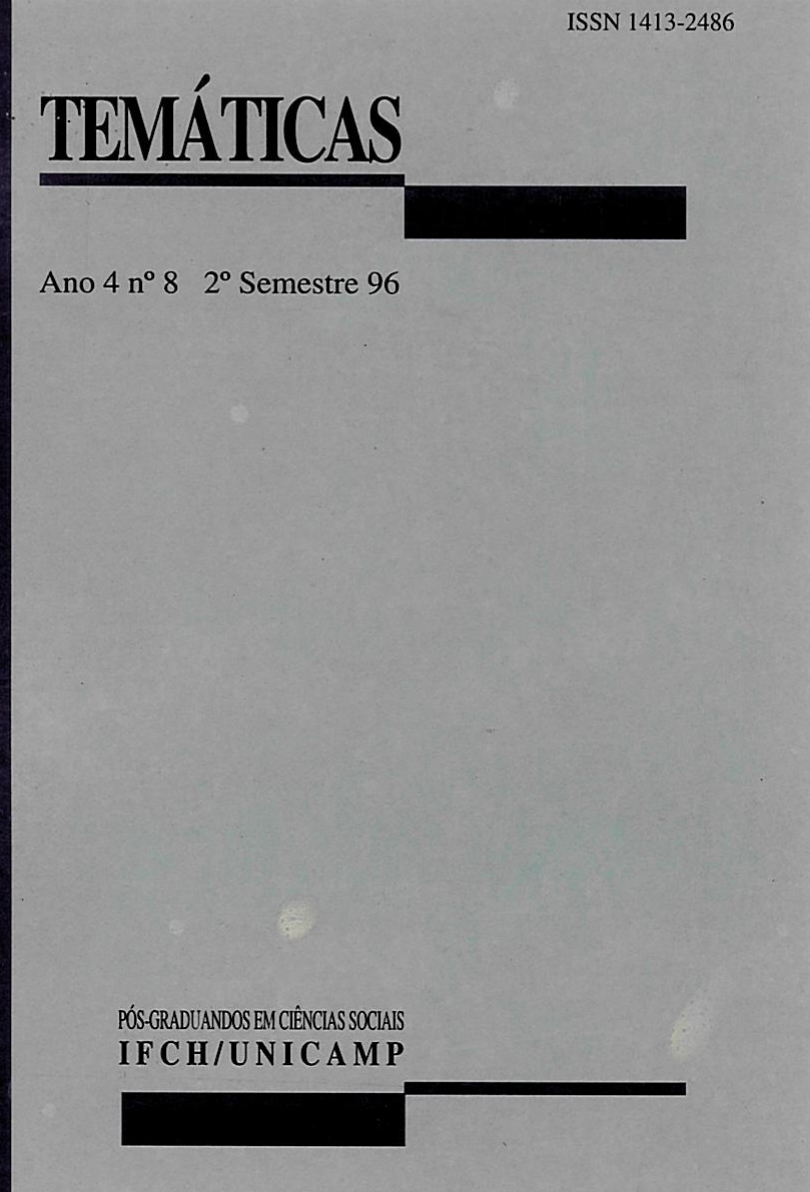Resumo
A Teoria da Ação Comunicativa, de Júrgen Habermas, é um valioso instrumental teórico para a análise da nova ordem de acontecimentos que emerge no mundo contemporâneo. Suas ambiciosas propostas analíticas vêm acompanhadas de um modelo de democracia radical que contempla a constituição da esfera pública política sobre novas bases, dinamizada por novos mecanismos e orientada para diferentes fins. O objetivo deste artigo é pensar como esse modelo habermasiano, enriquecido pelas contribuições de Andrew Arato e Jean Cohen sobre a teoria da sociedade civil, pode ser aplicado para o estudo dos novos movimentos sociais envolvidos na construção de tal modelo de democracia radical.
Referências
ADORNO, T. Capitalismo Tardio ou Sociedade Industrial. In: COHN, G. (Org). Adorno - Coleção Grandes Cientistas Sociais. São Paulo: Ática, 1986, p.62-75.
ARATO, A. Ascensão, declínio e reconstrução do conceito de sociedade civil - orientações para novas pesquisas. Revista Brasileira de Ciências Sociais, nº 27, 1995, p. 18-27.
ASSOUN, P.L. A Escola de Frankfurt. São Paulo: Ática, 1991.
AVRITZER, L. Além da dicotomia Estado/Mercado - Habermas, Cohen e Arato. Novos Estudos Cebrap, São Paulo, nº36, 1993, p. 213-222.
COHEN, J. Strategy and Identity: new theoretical paradigms and contemporary social movements. Social Research, Nova Iorque, v. 52, n. 4, 1985, p.663-716.
FREITAS, B. 4 Teoria Crítica: ontem e hoje. São Paulo: Brasiliense, 1986.
HABERMAS, J. Teoria de la Accion Comunicativa. 2 Tomos. Buenos Aires: Taurus, 1990.
HABERMAS, J. Three Normative Models of Democracy. Constellations, v.1, nº1, 1994, p.1-10,
HORKHEIMER, M. Eclipse da Razão. Rio de Janeiro: Labor do Brasil, 1976.
HORKHEIMER, M., ADORNO, T. Dialética do Esclarecimento. Rio de Janeiro: Jorge Zahar, 1985.
MARCUSE, H. One-Dimensional Man. Boston: Beacon Press Boston, 1968.
MARX, K., ENGELS, F. 4 Ideologia Alemã (Fenerbach). São Paulo: Hucitec, 1991.

Este trabalho está licenciado sob uma licença Creative Commons Attribution-NonCommercial-ShareAlike 4.0 International License.
Copyright (c) 1996 Sergio Tavolaro

